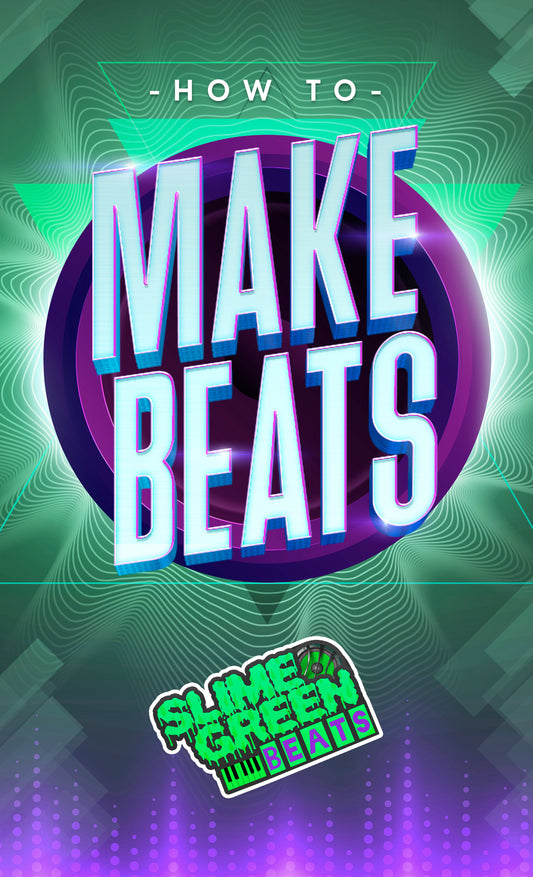Music production for video games is an art that plays a pivotal role in defining the gaming experience. It goes beyond just background sound. It weaves in emotions and stories into the game. This makes each moment more memorable and immersive. This article explores making soundscapes for gamers. It emphasizes the unique challenges. It also covers the creative strategies for making music for this dynamic medium.
The Role of Music in Video Games
Music's power to evoke emotions and drive narratives is clear in video games. A good soundtrack can lift the gaming experience. It turns simple interactions into epic adventures. Games like "The Legend of Zelda" and "Final Fantasy" have become as celebrated for their music as for their gameplay. They show the vital role of soundscapes in building immersive worlds.
Fundamentals of Music Production for Video Games
Making music for video games requires a nuanced understanding. It requires knowledge of both technology and storytelling. Composers must create themes. The themes must be memorable and able to adapt to the game's changing environments. This section will cover the basics of composing for games. It will highlight the importance of theme consistency. It will also cover the creative use of adaptive audio to react to players.
Techniques and Tools
The toolbox of a video game music producer is vast, encompassing a range of software and hardware designed to bring auditory visions to life. It will cover digital audio workstations (DAWs) and specialized spatial audio plugins. This section will cover the essential tools of the trade. The discussion will also cover the growing use of spatial audio. This audio creates realistic soundscapes for virtual reality (VR) games.
The Creative Process
A captivating video game soundtrack is backed by a creative process. It blends inspiration with technical skill. This part will explore how composers and sound designers approach their work. It covers from the initial concept to the final production. Collaboration with game developers is crucial, ensuring that the music perfectly aligns with the game's aesthetic and narrative goals.
Challenges and Solutions
Making music for video games is full of challenges. You have to keep loopable tracks engaging and balance the soundtrack with sound effects. This section will offer insights into common obstacles composers face. It will share strategies for overcoming them. The goal is to ensure that the music adds to, rather than detracts from, the gaming experience.
Conclusion
Making video game music is essential. It crafts immersive soundscapes that captivate players. They do this with creativity, skill, and close work with game developers. This lets composers and sound designers play a key role in bringing video games to life. For those who want to explore game music production more, Slime Green Beats offers many resources and beats for sale. It's an excellent starting point for composers and sound designers.
This article has a clear structure. It aims to give an in-depth overview of music production for video games. It blends technical insights with creative inspiration. These will guide readers through the fascinating process of making immersive soundscapes.
FAQ: Music Production for Video Games
Q1: What is music production for video games? Music production for video games involves making, arranging, and recording music and soundscapes. They are made to enhance the gaming experience. It includes composing music. It involves designing sound effects. And it involves adding audio that responds to gameplay in real-time.
Q2: Why is music important in video games? A2: Music plays a critical role in video games by setting the mood, enhancing the narrative, and providing audio cues to the player. It helps in building immersive worlds, emotionally engaging the player, and enhancing the overall experience of the game.
Q3: What are some challenges in video game music production? A3 faces many challenges. They include: creating looping music, adapting music to gameplay, balancing music with sound effects and dialogue, and ensuring audio fits the game's style and story.
Q4: What tools do video game music producers use? Producers use many tools. These include Digital Audio Workstations (DAWs), virtual instruments, sound libraries, audio plugins for effects and mixing, and hardware like synthesizers and MIDI controllers. Software for spatial audio design is also crucial for VR and 3D games.
Q5: How does adaptive audio work in video games? A5: Adaptive audio refers to soundtracks that change based on the player's actions or game events. This technique uses various layers of music and sound that can be mixed in real-time to reflect the game's current state, enhancing the player's immersion and emotional connection to the game.
Q6: Can anyone compose music for video games? Anyone with musical talent and a passion for games can aspire to compose music for video games. But, it requires knowledge of music theory and skill with music production tools. And, an understanding of how music can enhance gameplay and storytelling.
Q7: Where can I find resources to learn about music production for video games? Many resources are available for aspiring video game composers. They include online courses, tutorials, forums, and books on the subject. Websites like Slime Green Beats offer beats for sale and resources that can help beginners get started with composing and producing music for video games.
Q8: How do I get started in video game music production? A8: Start by learning the basics of music theory and familiarizing yourself with music production software. Practice composing pieces. They could fit many game genres. Consider working with game developers or contributing to indie games. This will help you gain experience and build your portfolio.
Q9: Are there specific genres of music that are more popular in video games? A9: Video games encompass a wide range of music genres, mirroring the diversity of the games themselves. It spans orchestral and cinematic scores. It also includes electronic, rock, and ambient music. The genre often depends on the game's theme, setting, and story.
Q10: How can I stay updated on the latest trends in video game music production? Staying updated involves following industry news. It means joining forums and social media groups focused on video game music. It means going to game audio conferences or workshops. And it means continually experimenting with new tools and techniques in your music production.








